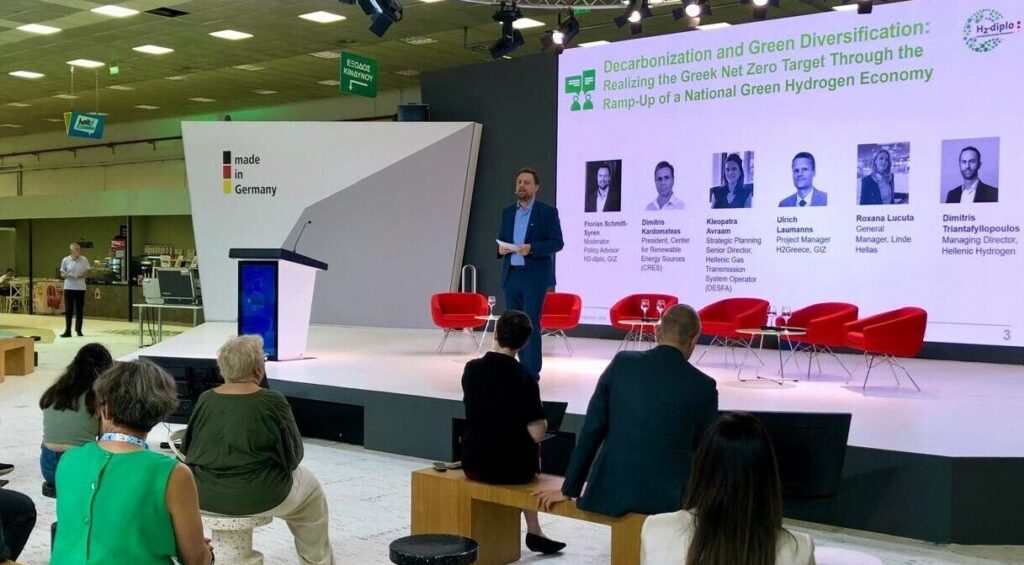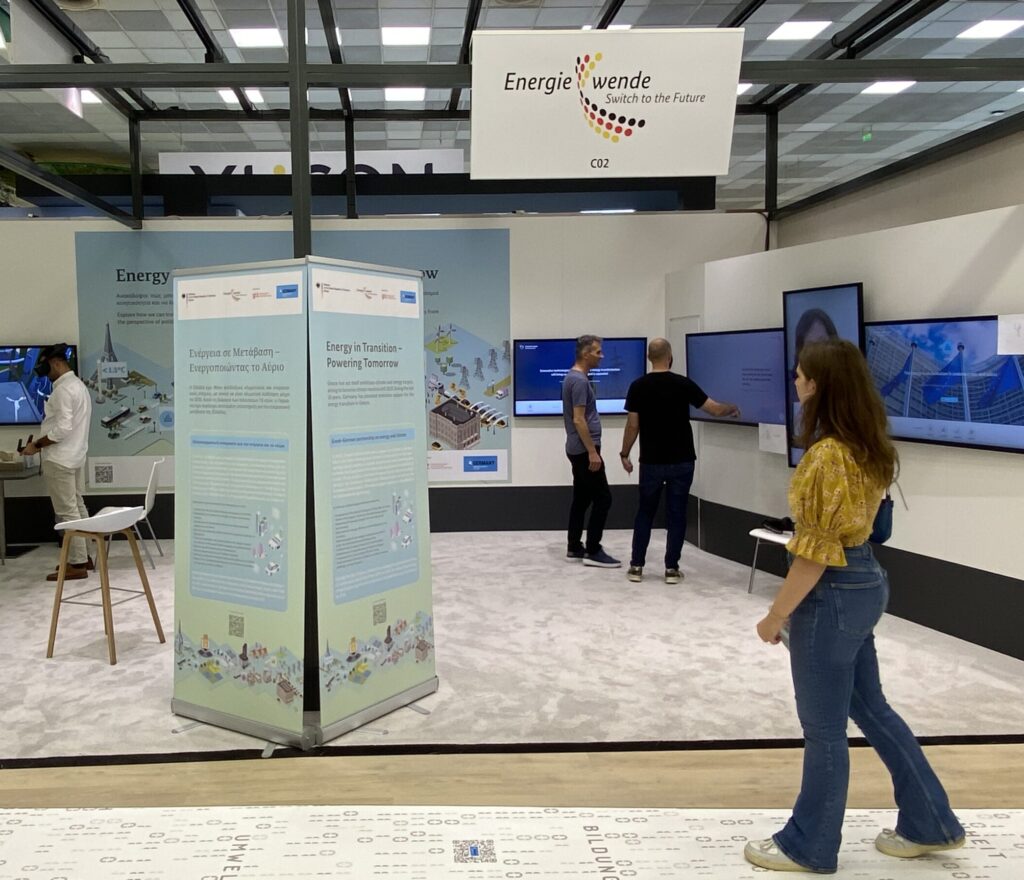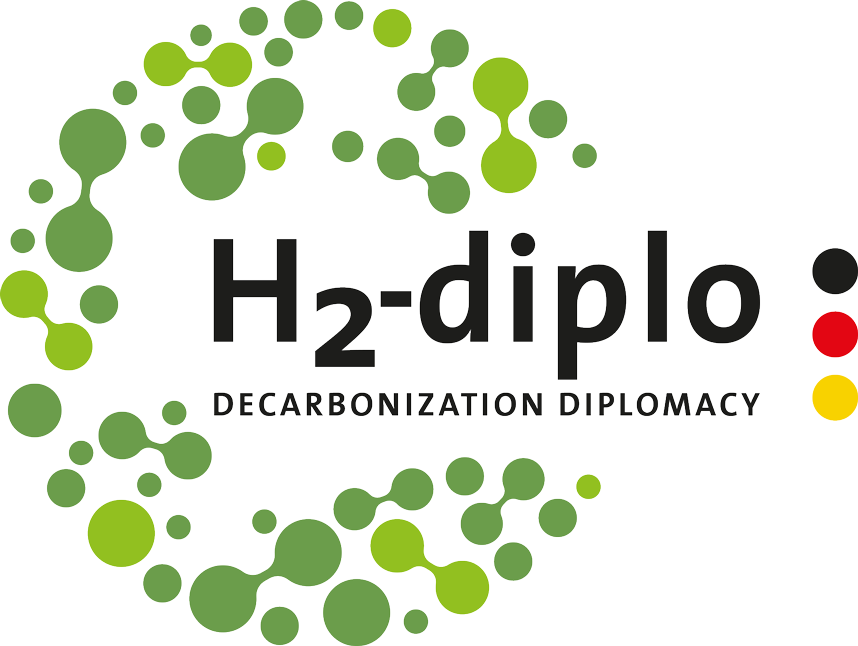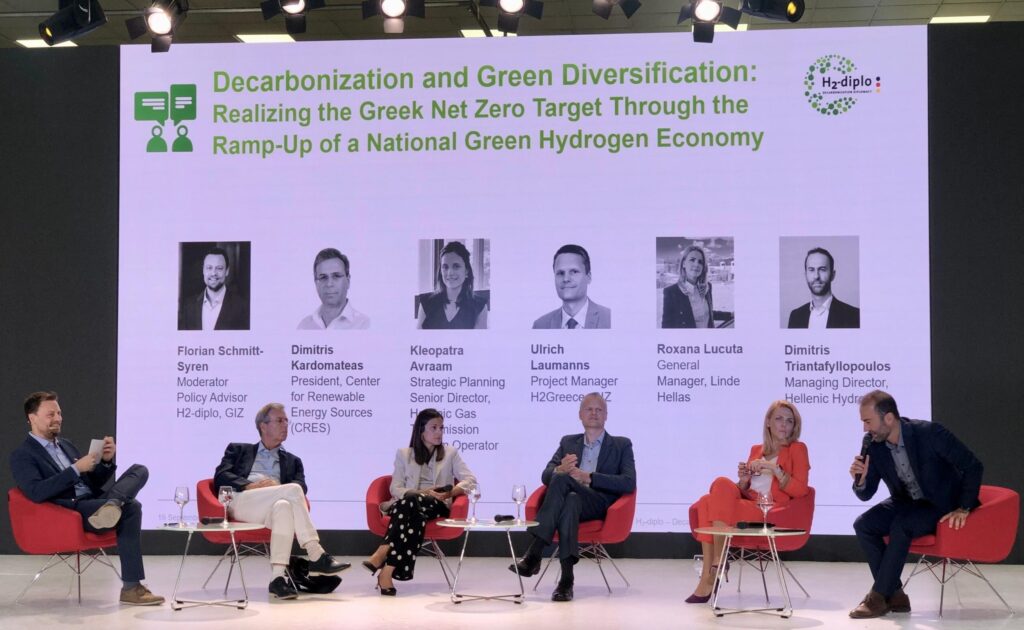
Discussing decarbonization and diversification in Greece
Under the auspices of the German Embassy in Athens, the panel event offered insights into shaping Greece’s hydrogen future with a specific focus on collaboration opportunities with the EU and Germany. The discussion highlighted Greece’s advantageous geostrategic location and its abundant renewable energy resources, positioning the country as a location for future hydrogen production, application, and export. The panelists sketched the role of hydrogen in decarbonizing various industries and creating new domestic value chains based on Power-to-X (PtX) technologies.
Next steps for realizing a green hydrogen economy
Despite the optimism surrounding Greece’s green hydrogen potential, challenges remain. The panelists noted that the current policy framework lacks sufficient regulations to fully develop a domestic hydrogen market. They also stressed a shortage of public and private funding for production incentives and financial support to attract the necessary investments for expanding energy infrastructure and integrating renewable energy into the grid. Uncertainties, especially regarding off-take agreements, might slow-down progress in ramping-up a national hydrogen economy.
Dimitris Kardomateas, President of the Center for Renewable Energy Sources and Saving (CRES) and key energy advisor of the Greek government, emphasized that a first step in addressing these challenges will be the forthcoming release of the National Energy and Climate Plan. The plan will include regulatory provisions for scaling up renewable energy production and the use of green hydrogen in hard-to-abate sectors and is expected to be published soon, following the current public consultation process.
Despite the ongoing challenges, the sectoral outlook remains positive: Roxana Lucuta from Linde, which has emerged as the first commercialized producer of green hydrogen in the country, underscored the crucial role hydrogen will play in decarbonizing sectors such as the chemical industry, long-haul transportation, and shipping, which are particularly relevant to Greece. With adequate political and financial support, she expressed confidence that Greece could supply enough hydrogen to green its economy and even export surplus to Western Europe’s industrial centers.
Cooperation is key
Collaboration with the EU and especially Germany, based on the European Hydrogen Strategy, was mentioned as vital for developing Greece’s hydrogen sector. Ulrich Laumanns, Head of GIZ’s H2Greece project, highlighted Germany’s high interest in working with partner countries like Greece, as Germany is expected to import up to 70% of its future hydrogen needs. Initiatives like H2Greece are thereby important assistance tools for supporting the Greek administration to develop the necessary regulatory framework conditions for the production, transport, and use of green hydrogen in Greece. Research and development collaborations were also emphasized as crucial, highlighting the importance of the German Federal Ministry of Education and Research’s (BMBF) ongoing initiative for fostering German-Greek research and innovation in the hydrogen sector.
Looking Towards 2040
The discussion concluded on a forward-looking note, envisioning hydrogen as a key pillar in Greece’s and Europe’s decarbonization journey by 2040. The panelists agreed that Greece’s hydrogen ecosystem is poised for growth until then, while achieving its full potential will require comprehensive financial strategies and strong political support. If successful, Greece can establish new green sectors, curb its national energy transition and play an important role in helping Europe reach its net-zero goals by mid-century.
This positive outlook towards the energy future was further highlighted during TIF 2024 through the display of the Federal Foreign Office’s insightful exhibition “Energy in Transition – Powering Tomorrow”, that sheds light on renewable energy sources and technologies and the concerns central to a just transition that leaves no one behind. Find further information on the exhibition on its website website.

Panel Facilitation
The event was hosted by the German Embassy in Greece, andGreece and facilitated by H2-diplo in cooperation with the GIZ-projects DIPLOMERGY and H2Greece. The Athens-based H2Greece project, funded by the German Federal Ministry for Economic Affairs and Climate Action and the European Commission, aims to improve the framework for green hydrogen production, transport, and use in Greece. The DIPLOMERGY project supports the Federal Foreign Office’s global diplomacy on the energy transition through various communicative instruments, including this years’ participation at the German Pavilion of the TIF.

